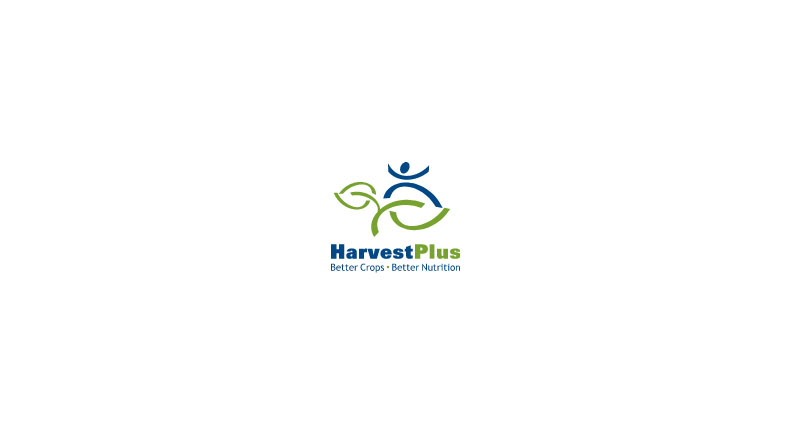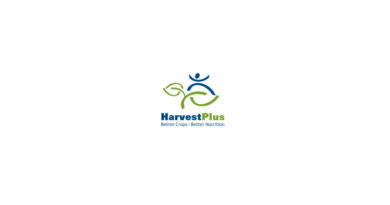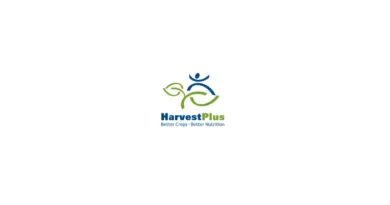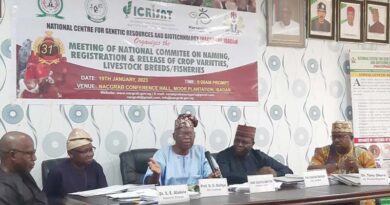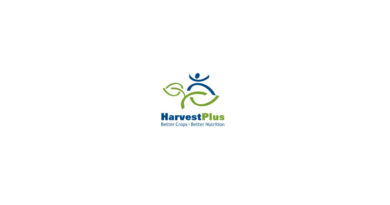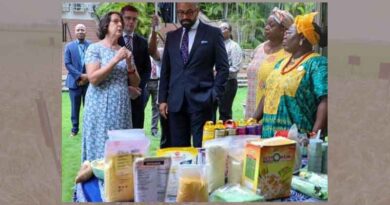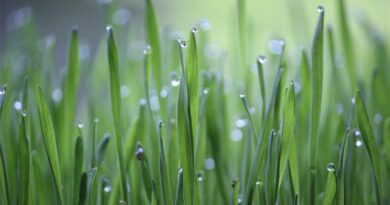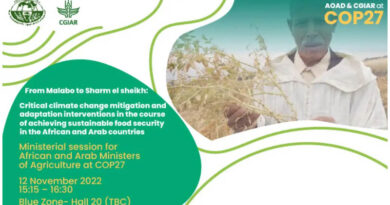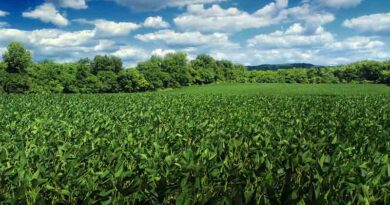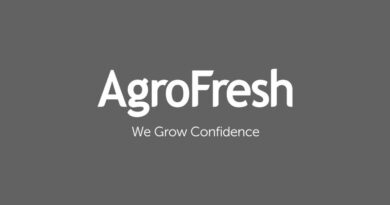Iron-Enriched Pearl Millet Varieties Launched In Northern Nigeria
10 April 2023, Nigeria: Two varieties of iron pearl millet are now available to smallholder farmers in northern Nigeria to grow and for commercialization. Released this week, these naturally nutritious, climate-smart varieties will help address farmers’ needs to improve their household nutrition and productivity in the face of global shocks.
Climate volatility in northern Nigeria is leading to decreased crop yields, increased food prices, and heightened food insecurity—worsening malnutrition. Smallholder farmers are looking for opportunities to bridge production yield gaps brought about by climatic stress through improved agricultural technologies like nutrient-enriched seeds.
Through a collaboration between HarvestPlus, the International Crops Research Institute for the Semi-Arid Tropics (ICRISAT) and Lake Chad Research Institute, the iron-enriched varieties (known as jirani and chakti) have become the first biofortified pearl millets to be released in Nigeria. This initiative builds on scaling efforts in India, where the number of farming households growing iron pearl millet has jumped 395% since 2021.
“These iron pearl millet varieties will address major constraints in millet production and contribute to food and nutrition security for smallholder farmers currently growing millet for food and income in Nigeria,” said Yusuf Dollah, HarvestPlus Country Manager in Nigeria.
Iron pearl millet combines higher iron content with other enhanced and preferred farmer traits including higher yield, extra-early maturity, and drought-tolerance to provide more nutrition and food security to rural farming communities in arid and drought-prone regions where few other crops thrive.
The World Bank estimates that Nigeria loses over US$1.5 billion in gross domestic product annually to vitamin and mineral deficiencies. Anemia is a major public health issue affecting 68% of children under five years old, largely due to iron-deficient diets.
As an affordable dietary source of iron in the region, iron-enriched varieties of pearl millet like chakti can improve nutrition for millions of farming households—providing up to 80 percent of daily iron needs when eaten regularly. Eating iron pearl millet is a proven way to resolve iron deficiency and enhance the cognitive abilities of adolescents.
To bring deserved attention to iron pearl millet’s nutritional qualities, resilience to climate change, and potential to alleviate poverty among farmers in drought-prone areas, the Food and Agricultural Organization of the United Nations (FAO) declared 2023 the International Year of Millets.
The FAO is calling on global stakeholders to provide support for activities that raise awareness of, and direct policy attention to, the nutritional and health benefits of millet consumption, as well as its suitability for cultivation in poor soils and adverse and changing climatic conditions. Millets can create sustainable and innovative market opportunities for smallholder farmers to improve their livelihoods, and benefit consumers globally.
HarvestPlus is working with public, private, and national partners to promote the adoption and scaling of these new nutri-cereals, to help bring upon a rapid and nutritious transformation of the Nigerian food system.
Also Read: Need to enhance customs duty to 30% on import of all Agrochemical formulations: CCFI
(For Latest Agriculture News & Updates, follow Krishak Jagat on Google News)

